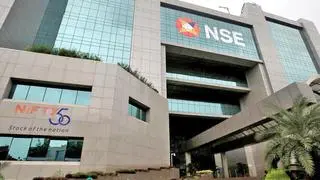Indian stock market will open in a new era this morning; one in which the complicated web of indirect taxes are replaced by a vastly superior Goods and Services Tax. This tax regime is expected to benefit larger businesses that form part of the listed universe in multiple ways and stock prices have already been soaring higher, factoring-in this fact. The concern is whether the rally has made stocks too pricey.
Benefits are manyThere is a consensus that the GST will improve the growth rate of the economy by at least 100 basis points over the medium term. “GST with its stress on digital transactions will improve tax compliance and widen the tax base. As a result, over time, tax base should increase and tax rates should moderate. Besides, GST should sharply enhance ease of doing business,” says Prashanth Jain, ED and CIO, HDFC Mutual Fund. Better growth rate tends to trickle down to corporate earnings. Besides, improving tax collections will translate into higher public spending that will boost the order books of infrastructure and utility companies.
The lowering of the threshold for GST registration to ₹20 lakh will result in many companies in the unorganised sector losing their competitive edge.
This level playing field will be conducive to larger companies.
"We are of the view that India stands to gain tremendously because of the increased tax compliance and migration of unorganised to organised business. This is likely to result in improvement of the economy and will be reflective in stocks market as well over a period of time,” says S Naren, ED & CIO, ICICI Prudential AMC.
According to Edelweiss, segments of India Inc that faced intense competition from unorganised players such as diagnostics, dairy, branded apparels, building material, plastic and packaging will reap the benefits of the shift of consumers from unorganised to organised segment.
Tax incidence on many companies is also likely to move lower due to the Input Tax Credit on services and other payments that were so far not available.
For instance, FMCG, consumer durables and real estate companies that spend heavily on marketing can now claim ITC on payments made to advertisers. Many companies are off the opinion that margins can improve over the medium term due to lower tax outgo.
Last, logistics expenses of many companies is set to move down sharply due to decline in transit time as the number of check-points reduce and consolidation of warehouses takes place. Sectors such as cement, steel and chemicals will gain due to this cost reduction.
How much further?While long-term benefits are certain, concern stems from the fact that stock prices have run-up too much already. The Sensex and the Nifty are up 15 per cent over the last 12 months with the broader BSE 500 rallying 20 per cent in this period. The current PE ratio of the Sensex on a trailing 12 months basis at 23 is much above its 3-year average of 20.2. On a forward basis too, valuation of the benchmark has moved above the 3-year average.
Many of the sector indices such as real estate, auto and metals also sport valuation that appears over-heated.
Short-term uncertaintyThere is also fear that the transition can impact the earnings of the September quarter of FY 18.
“There seems to be little evidence of planning or preparation at retail stores. This indicates corporates still need time to a) understand GST themselves, and b) then communicate the impact/changes to end of chain staff. The impact of GST on listed company volumes and earnings may extend beyond the June quarter,” writes Sanjay Mookim, Research Analyst, DSP Merrill Lynch (India), in a strategy report.
The impact on the full-year earnings could, however, be minimal thinks Prashanth Jain.
“Since GST is being implemented in the middle of a financial year, there should be no impact on earnings for the year, though quarterly numbers could see some variation due to inventory changes/trade de-stocking,” says Jain. “Further, sectors like banking, IT, utilities, oil & gas, capex, telecom that constitute nearly 70 per cent of indices should see no impact whatsoever.”








Comments
Comments have to be in English, and in full sentences. They cannot be abusive or personal. Please abide by our community guidelines for posting your comments.
We have migrated to a new commenting platform. If you are already a registered user of TheHindu Businessline and logged in, you may continue to engage with our articles. If you do not have an account please register and login to post comments. Users can access their older comments by logging into their accounts on Vuukle.